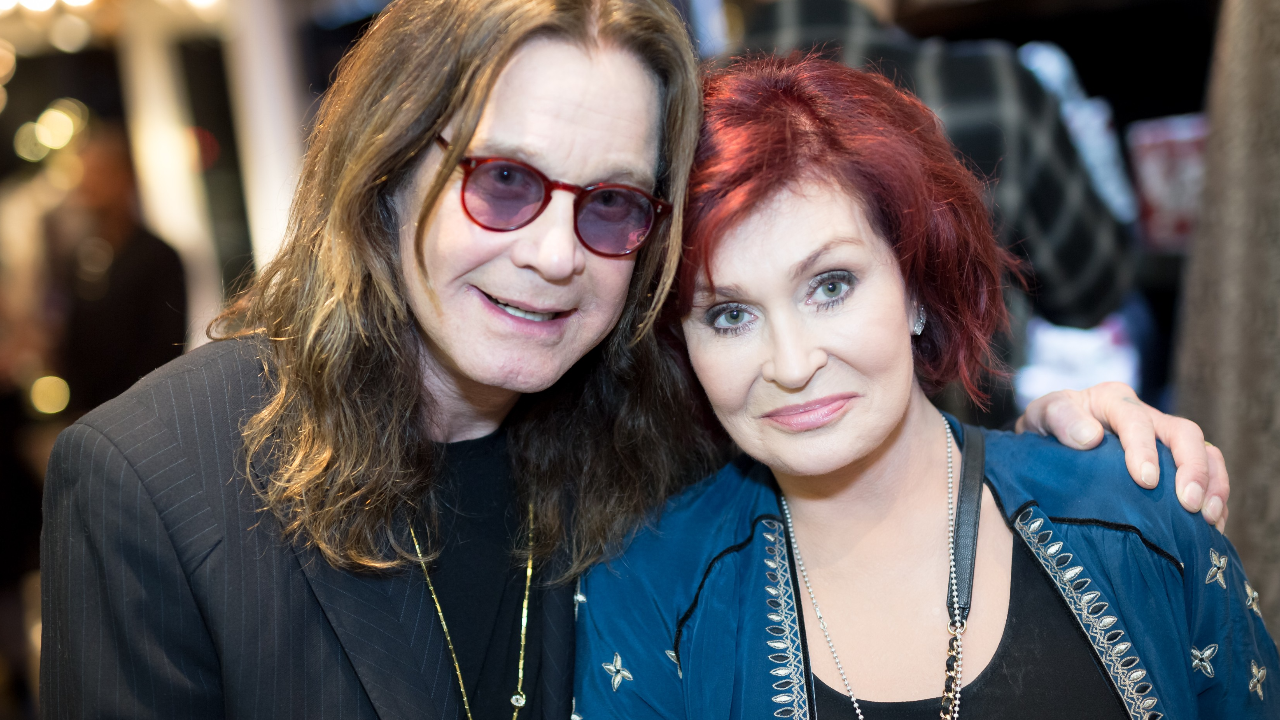Controversy, Colbert and a Grammy Award: How Ghost finally broke America with Cirice
Thanks to the lead single of 2015’s Meliora, Tobias Forge’s devil church made their late-night TV debut, won their first Grammy and spread their Satanism throughout the States

By the time Ghost finished promoting their second album, 2013’s Infestissumam, they’d done everything required to be positioned as future breakout stars. Much like the Devil himself, Tobias Forge’s anti-church were both tempting and dangerous: on the one hand, they made sensual, melodic music inspired as much by Abba as it was by Candlemass. On the other, they dressed like a satanic cult with a skeletal antipope – a combination that both dazzled young listeners and infuriated the mainstream’s older, stuffier gatekeepers.
Ghost were incessantly talked about, fun to hear and disliked by everybody uncool. No way they wouldn’t explode.
Then, two years later, it happened: this theatrical carnival of horrors from middle-of-nowhere Sweden broke America. The lead single of the band’s 2015 album Meliora, entitled Cirice, gave capitalists the chance to turn controversy into cash and embrace all the discourse. The band made their late-night television debut playing the song, then it won the Grammy Award For Best Metal Performance in 2016. By the end of the Meliora cycle, Ghost had gone from playing 1,200-capacity clubs in Los Angeles to filling near-2,000-person venues there two nights in a row.
Of course, Ghostmania wouldn’t have been possible if Cirice weren’t an incredible song. Tethering the seemingly disparate worlds of pop and doom metal, the single contrasts a pounding opening riff with, later, a seductive chorus – one of the band’s best, in fact. It’s a song so well-honed that it was surprising when Forge revealed it was originally supposed to be something very, very different.
“With Cirice, I had the definite idea for a doomy track that was potentially going to be a nine-minute instrumental,” Forge told MusicRadar while disguised as a Nameless Ghoul in 2015. “Actually, it was called Devil Church/Cirice, and [fellow Meliora song] Devil Church was the opening. It was supposed to be dark, dark, just absolutely horrible.”
It was Meliora’s producer, Klas Åhlund, who stepped in and saw that something more could be pulled from Cirice’s crushing riff. “Klas said, ‘I don’t know if this is good enough. Can you work on it for an hour while I step out for a bit?’” Forge continued. “He came back and said, ‘OK, do you have the verse?’ I said, ‘I do have the verse… and I also have a chorus.’ The song just kind of took off from there.”
During that hour, Forge had penned lyrics about seduction and manipulation, using ominous words that implied a horrible figure was tempting the listener with some ulterior motive. ‘Can you hear the rumble? Can you hear the rumble that’s calling?’ Forge (then as Papa Emeritus III) repeatedly asks, later adding, ‘From now our merge is eternal.’
Sign up below to get the latest from Metal Hammer, plus exclusive special offers, direct to your inbox!
“Cirice is meant to sound dangerous. It’s meant to sound double in nature and kind of deceiving. But you can also listen to it as a complete comfort track.”
Tobias Forge
For Forge, these lines are a metaphor for the behaviour of the Christian church. The institution, he perceives, seduces the vulnerable with promises of paradise before exploiting their faith. The title Cirice hammers home the themes of religion and romance: the word is Old English for ‘church’, yet Forge intentionally mispronounces the C’s more softly, to make ‘cirice’ sound like a feminine name.
The single was released on May 30, 2015: three months before Meliora came out. It instantly established a new commercial peak for Ghost, becoming their first song to make it onto the US Mainstream Rock charts and climbing to number four. It was the first single they’d released since early in the Infestissumam cycle, so all the debate they’d courted with their blasphemous imagery and alluring songs was truly starting to pay off now.
That was just the beginning, however. In December 2015, the nominees for the following year’s Grammy Award For Best Metal Performance were announced, with Ghost standing alongside Slipknot, Lamb Of God, Sevendust and August Burns Red for a chance at a big gold gramophone. It was an announcement that, given his band were basically banned from US radio three years prior, stunned Forge.
“When I got the text [saying we’d been nominated], I told my friend next to me that we’d been nominated for a Grammis [a Swedish Grammy Award],” the musician said. “It wasn’t until like an hour later that I confirmed they were actually talking about a Grammy, which was a very mind-boggling experience.”
Forge and his Ghouls arrived at the ceremony in Los Angeles on February 15 wearing full Ghost regalia. Although the metal portion of the Grammys has not been televised since 1992, the band still used the media opportunity to retain their seductive yet occult image. On the red carpet, Forge declared, “We like to be in heat,” when interviewed about handling the temperature while in costume as Papa Emeritus III. Then, when his band won the trophy, he confidently marched to the podium, claimed his award and ended a brief acceptance speech with, “Now… go party!”
Ghost would make it onto the American airwaves proper pretty shortly thereafter. The band returned to the US for a headlining tour in the autumn of 2016. While in L.A. in October, they stopped by The Late Show With Stephen Colbert, performing Cirice for their stateside TV debut. Naturally, given that this is Ghost, the segment went above and beyond in terms of pomp and symbolism. Not only did zombified fans march to the stage during the song; Papa Emeritus III put his hand on one’s chest, causing her to faint and spasm in a parody of American televangelist broadcasts.
Cirice’s global popularity has persisted through to 2023. On Spotify, it is the most-streamed song to come from the band’s first three albums, reaffirming the scale of the breakthrough it represented. Furthermore, last year, Forge declared Cirice to be the best song for introducing a newcomer to Ghost.
“It sums up a lot of the concepts of the band lyrically and musically,” he told Revolver. “There’s a big handful of metal in there, but also AOR and melody. There’s a sort of androgynous element that I like to try to harness into our songs, and I think Cirice has that ambiguity. It’s meant to sound dangerous. It’s meant to sound double in nature and kind of deceiving. But you can also listen to it as a complete comfort track.”
Comfortable but deceiving – again, much like the Devil himself.


Louder’s resident Gojira obsessive was still at uni when he joined the team in 2017. Since then, Matt’s become a regular in Metal Hammer and Prog, at his happiest when interviewing the most forward-thinking artists heavy music can muster. He’s got bylines in The Guardian, The Telegraph, The Independent, NME and many others, too. When he’s not writing, you’ll probably find him skydiving, scuba diving or coasteering.
